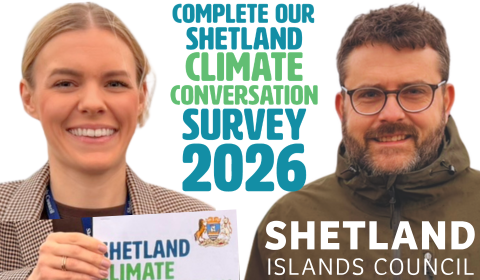Viewpoint / A ‘world leading’ fishing nation: but it isn’t Scotland
In August 2025, four young Shetland whitefish skippers travelled to investigate the alternative fisheries management models of Norway, Denmark and Iceland. Shetland Fishermen’s Association Executive Officer Daniel Lawson, who accompanied them, writes this account on their impressions of Iceland in particular…
“Oh my goodness, you are in a terrible situation”.
This was the very understandable reaction we received from the head of an Icelandic fishing company when he grasped the extent of the international fishing effort taking place around Shetland. After scrolling his computer screen south to Shetland, and after some initial confusion over nearby Orkney, he centred our islands in the middle of his AIS tracker screen – having located us still quicker than many of our fellow Scots might manage.
He zoomed out, and was suddenly shocked to see the number of fishing vessels operating in the waters around here. Even more shocking, he claimed, was that so few of them were Shetland boats, or even Scottish boats, or even British boats.
Steven Hughson (Ocean Challenge LK 253) and Duncan Cumming (Avrella LK 174).
“You have no control over this?” he demanded, in obvious confusion. “Even if you did manage to grow the fish stocks around Shetland, you would not benefit from it at all – they would!”
It was plain to see the simultaneous whirring of his calculating mind as he eyed up the opportunity for his own fishing vessels. If our governments allow fishing fleets from everywhere else in Northern Europe to come and catch their quotas in the reportedly productive grounds around Shetland, why not his as well?
These sentiments – both spoken and unspoken – sum up the predicament that our fishing community is in. Anyone can see that we have lost control of our waters, again, and that – without intervention – the pile-on will continue unabated until Shetland’s fish stocks pay the price and our productive seas are knocked into submission. Whereas the international fleets will move on to other areas, comfortably backed by whichever fishing corporation controls them, smaller and family-owned Shetland boats will be among the first to fail – along with all of the onshore activity that they support.
Become a member of Shetland News
The desperation for their businesses to survive would push our fishermen further down that path that Shetland has so far managed to resist much better than elsewhere in the UK: distant corporate ownership, bigger boats but far fewer of them, salaried agency crew at the expense of shareholding Shetlanders, and the forced abandonment of the traditional model which has always been valued for the extent to which it helps retain and spread the profits from fishing throughout our community.
It’s a bleak outlook, potentially calamitous for Shetland, foretold and forewarned in the blink of an eye by a canny Icelander – who could not bring himself to comprehend what kind of government would ever allow it.
When did modern, sustainable, independent, locally owned and locally crewed fishing fleets stop being the ones that we – as a nation – want to encourage and protect?
The extractive alternative would see the profits from fishing largely disappear from here, and – whilst Shetland fish stocks would bounce back, as they always have – there would be no recognisable Shetland fishing fleet left to help Shetlanders benefit from them. A basic injustice and an unforgivable travesty.
Both UK and Scottish Governments boast that we are a “world class fishing nation”, with “world class, sustainable management of fisheries”. But we aren’t, not anymore, and we shouldn’t kid ourselves that we can ever be – unless attitudes change – and the remaining UK fishing fleets (and fish) are much better protected from international effort.
Back to Iceland, then, where the level of shock at our terrible situation was mirrored in strength by our envious disbelief at the control which the Icelandic government has been able and willing to implement. Having never been entangled in the European Union’s basic principle of reciprocal fishing access, Iceland allows literally a handful of Faroese fishing vessels into its waters every year. Others – such as Norwegians and Greenlanders – are allowed access only for seasonal and migratory pelagic fisheries such as capelin and herring. A total of two – yes, two – Norwegian longliners have also been permitted access for whitefish every year.
Even when these visitors arrive: they are restricted into certain sea areas at certain times of year. The rest, across Iceland’s huge and productive exclusive economic zone, is for the benefit of Icelanders only. It is a night-and-day situation in comparison with the UK, and our constant failure to maximise the opportunities which becoming an independent coastal state could still afford to us. There are other examples…
The Icelandic government’s marine research institute develop and provide quota advice to their ministers directly, to decide the total allowable catch (TAC) for each species. ICES is reduced to a purely advisory body, and the complications of international bi/trilateral TAC setting is largely irrelevant.
A discard ban is enforced by rigorous surveillance (helicopters, drones and positional data), but there are various mechanisms which allow for flexibility in the system. Icelandic boats in danger of overshooting their quota on a particular species can trade quota, bank and borrow quota from the following year, cover small overshoots with quota from associated species, land undersized fish for only half its true weight in quota terms, or land a small percentage of each species into a government auction. Vessels only retain a small share of the sales value, to help cover the costs of landing the fish, but the rest goes into a government grant fund – which helps support industry initiatives and fishery science projects.
Because they have incentivised boats not to discard, the authorities have a much stronger understanding of the true extent of fish populations and sizes. This has led to more assured management decisions, encouraging growth of fish stocks, and a steady increase in the workable mesh size for whitefish gear: with some Icelandic vessels now comfortably working a voluntary cod end mesh size of up to 185mm – compared to the 120mm enforced in Scottish waters.
We saw an incredibly modernised industry in Iceland, to the extent where automated fish holds no longer need men working within them, and processing factories are almost entirely robotised. These require less of a workforce, true, but that workforce is exclusively Icelandic.
The entire team of fisheries inspectors in Iceland were former fishermen: they do their job and do it well, but are able to apply an approach of understanding and relatability which builds trust with industry and encourages co-operation and partnership.
It didn’t matter where we went, fishing was featured prominently. An Italian restaurant would be sure to have Icelandic fishing artwork on its walls, and it seemed like every taxi driver we met was also a fisherman – a proud fisherman at that.
We saw a northern fishing nation – only 400,000+ people – which over decades has worked hard and carefully to ensure that profitability, sustainability, flexibility and understanding all feature strongly in its fisheries management systems.
The result: a real world-class fishing nation which grasps the true value of productive fishing grounds and profitable fishing crews – and protects that value for the good of its own citizens, first and foremost.
The trip was funded by the Shetland Fish Producers’ Organisation, with grateful thanks.
Become a member of Shetland News
Shetland News is asking its readers to consider paying for membership to get additional perks:
- Removal of third-party ads;
- Bookmark posts to read later;
- Exclusive curated weekly newsletter;
- Hide membership messages;
- Comments open for discussion.
If you appreciate what we do and feel strongly about impartial local journalism, then please become a member of Shetland News by either making a single payment, or setting up a monthly, quarterly or yearly subscription.

















































































